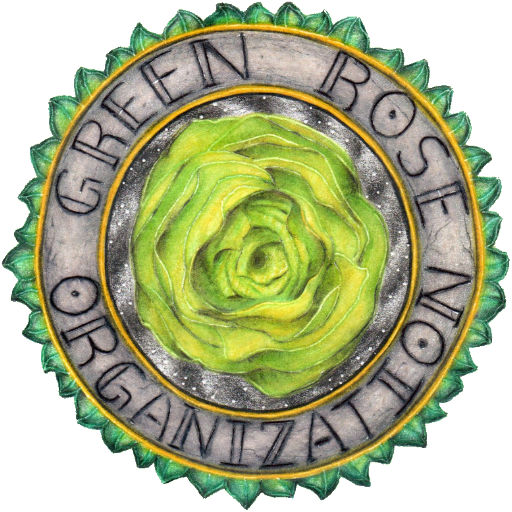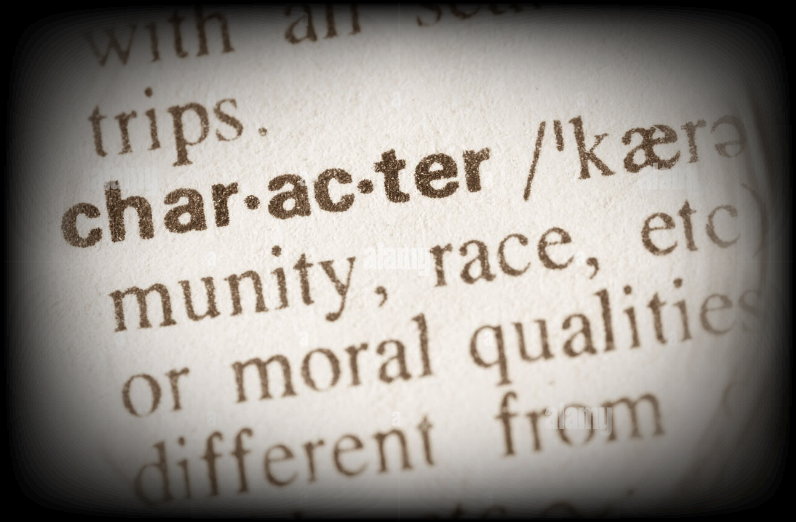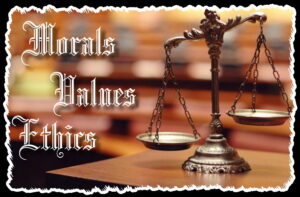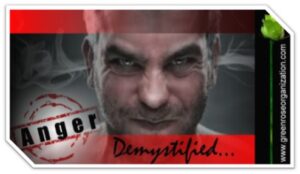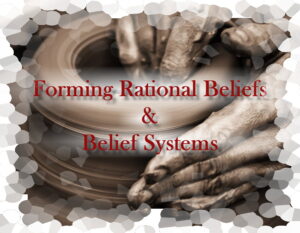DEFINING OUR DEFINITIONS OF CHARATER
by Shawn Malzahn
Everyone has their own interpretation of what the term Character implies, and this is going to be an obstacle that we will hopefully overcome by the end of this lesson. It’s important that we clearly define Character so as to ensure that we are all on the same page from here on out. This is critical because Character, and Character Development, are going to be recurring themes throughout the entire self-improvement workshop. Thus we are going to examine Character by first taking a look at how this concept was perceived and esteemed by famous people of antiquity. We will then begin to explore the etymology of the word itself, which simply means that we are going to make an attempt to trace the origin of the word Character, as well as the various ways in which its meaning has changed throughout the course of history over time. After that, we will then end our investigation by narrowing down the various definitions of character to its most basic, logical, and practical meaning, which will then be our working definition of Character for all future lessons here to come.
The idea of Character and Character Development has been around for quite some time now. Some people believe that mankind first “discovered” the seeds of Character some 400,000 years ago. This is around the time when we as human beings first began to move away from being completely self-concerned (primarily isolated) scavengers, to that of the more co-operative social orientated hunter-gatherer. This is because of the simple fact that if man wished to survive against Nature's forces and competing species, he had no choice but to learn how to quickly adapt to Nature’s design, as well as the preferred patterns of other creatures coexisting in his environment (including his own species) and that’s just what character development aims to do; it helps us become more respectful, fair, and kind (among other virtues) which are all personal attributes necessary to ensure adaptability within our social circles, as well as our societies and civilizations at large as they continue to evolve and develop. Aside from Anthropology, there are other fields of science that can help us see just how old and important Character and Character Development truly is. Take Philosophy for example; Aristotle, Socrates, Immanuel Kant, Plato, David Hume; these were all well known Western moral philosophers who have spoken extensively on what it means to be a decent human being. Not to mention all the Eastern scholars and spiritual leaders who brought (in my opinion) even greater degrees of understanding and richness to the term Character (well before the western world even knew of such things). Take for instance Confucius’s “Analects”, Siddhartha Buddha's “Dhammapada”, Muhammad’s “Hadith”, and even Moses’s “Ten Commandments”, these are all ancient proofs of the supreme importances of Character, and its need to be well refined and defined for the masses. For example, Confucius’s main concepts of upright character included what he called ren (humaneness), yi (righteousness), li (propriety/etiquette), zhong (loyalty), and xiao (filial piety), along with ancestral worship and strict adherence to social roles. Confucius, apart from introducing a superb moral and ethical philosophy to the Han Dynasty, also succeeded in winning over the hearts of more than one-third of the world's population at the time. Do you truly understand what that means? Quite simply, it means that Character, more specifically men and women of good character, have the remarkable ability to potentially unify the whole world!
Now that we understand more about the power and timelessness of Character Development, let us begin tracing the origin of the word itself so as to see just how it was defined in previous years. Yet before we get started, I would like for you to think briefly about what Character means to you. What is Character? It is often said that “such and such” is a person of excellent character, or that “so and so” is a great man or woman of respectable Character, but what exactly does the word Character imply? I know from first hand experience that when I ask people this question, they often tell me that Character is basically something that makes one person stand out from another. Although not entirely false, this is still way too vague and ambiguous of a definition for us to actually make any serious progress in our Character Development endeavors. If that were all that there is to it, then I suppose I can say that I am a man of respectable Character simply because I’m wearing a bright pink shirt that makes me stand out from other people. Obviously this is not so, because wearing pink shirts has nothing to do with getting along with other people, and adapting to our environments. Hence let us now begin peeling back this onion of Character one layer at a time. It wasn’t until roughly 1640 when Character became synonymous with the aforementioned definition, or essentially, “the sum of qualities that define a person or thing and distinguish it from another”. Going back even further to the late 15th century, we find Character meaning something entirely different, namely, “an alphabetic letter or graphic symbol standing in place for a sound or syllable”, and still further to the mid 15th century we see it stating, “a symbol or drawing used in sorcery”. Oh no! Did he just say sorcery? Not sorcery! But wait, what does sorcery actually mean? Sorcery is defined as “the use of power gained from the assistance or control of evil spirits”. Yet what if these so-called “evil spirits” actually had nothing to do with monsters or demons at all, maybe it didn’t have anything to do with anything outside of ourselves whatsoever, but actually referred to the evil nature of mankind, specifically the vicious qualities of his or her psychological nature, such as; Hate, Lust, Greed, Envy, etc. and by gaining control of these non-virtuous qualities, one begins to transmute them into their diametrical opposites, such as; Love, Self-restraint, Temperance, and Generosity, thus gaining POWER by way of earning respect from your peers while engaging in the affairs of everyday society. Interesting to think about, right?
Having these new definitions of Character is helpful, especially when we begin to think “outside of the box” while trying to look at these new definitions from a different perspective. However, let’s not lose sight of the bigger picture here. We are still trying to get very specific as to what Character actually means at its core, because without doing so, we won’t have the slightest clue as to where we should begin our Character Enrichment journey. We won’t know where to look within ourselves. We won’t know what it is that we are actually needing to improve upon. Therefore let us dig deeper. If we look at the Greek and Latin definitions of the word Character, we find it simply stating, “to mark, scratch, and/or engrave”, which seems to associate Character with something very deep and long-lasting, but what? What is the deepest and longest-lasting part of a human being? Take some time to reflect on this question. Perhaps now it may be interesting to note, after having examined ourselves from this new angle, that our initial conceptions of Character are beginning to change. For what we once believed to be external, temporary, and easily observable by others, such as; physical appearances and particular behaviors, now seems to be insufficient since these superficial attributes, or essentially surface appearances, are no longer compatible with our present search for something much more concrete, deep, internal, and therefore not easily perceived by others. So then what shall we conclude? What is the single-most, deepest, most intimate, private and enduring aspect of a human being? The key word here being enduring, and to my knowledge, there is nothing more enduring about a man or woman apart from his or her Mind and/or Soul. Whichever terms we use here to describe this metaphysical energetic process will likely depend upon our scientific and/or spiritual inclinations. Yet essentially, the claim I am trying to make here is that Character resides primarily in one’s own mind, and nowhere else, and that it can help us live happier, more fulfilling lives, if we knew how to develop it properly. To further support this belief of mine that Character resides primarily in one's own mind, I would like to turn your attention to an English sub-definition of the term Character as my final piece of evidence. This source defines Character as, “the complex of mental and moral traits”, moral here signifying our sense of right and wrong conduct, or that “tiny voice” deep within us that is commonly referred to as Conscience. Thus from here on out, whenever we make reference to the concept of Character (in its abstract and most general sense) we are indeed speaking of the deep, internal, intimate, “mental and moral traits of man, fashioned by his own thinking in relation to his experiences”; traits that are long-lasting and very powerful, such as those aforementioned virtues of Love, Self-restraint, Temperance, and Generosity, as well as the four foundational pillars of Confucius's moral philosophy.
All in all, these characteristic “mental and moral traits of man” are quite literally capable of dramatically increasing or decreasing the overall quality of our lives, obviously depending upon the degree of their development and use. Thus Character and Character Development is a product of our very own thinking. Thus this “thinking” function of the mind, and how we use it, is essentially our “character builder”, because this is the ROOT, that if changed, will change absolutely EVERYTHING about ourselves automatically over time. This should be a sufficient working definition of Character that we can use from here on out, one that I believe psycho-therapists and physiologists can agree with, since they (more so than most) are well aware of the effects that mental activity (specifically thinking) has on our Spiritual, Mental, Emotional, Physical, and Behavioral conditions.
